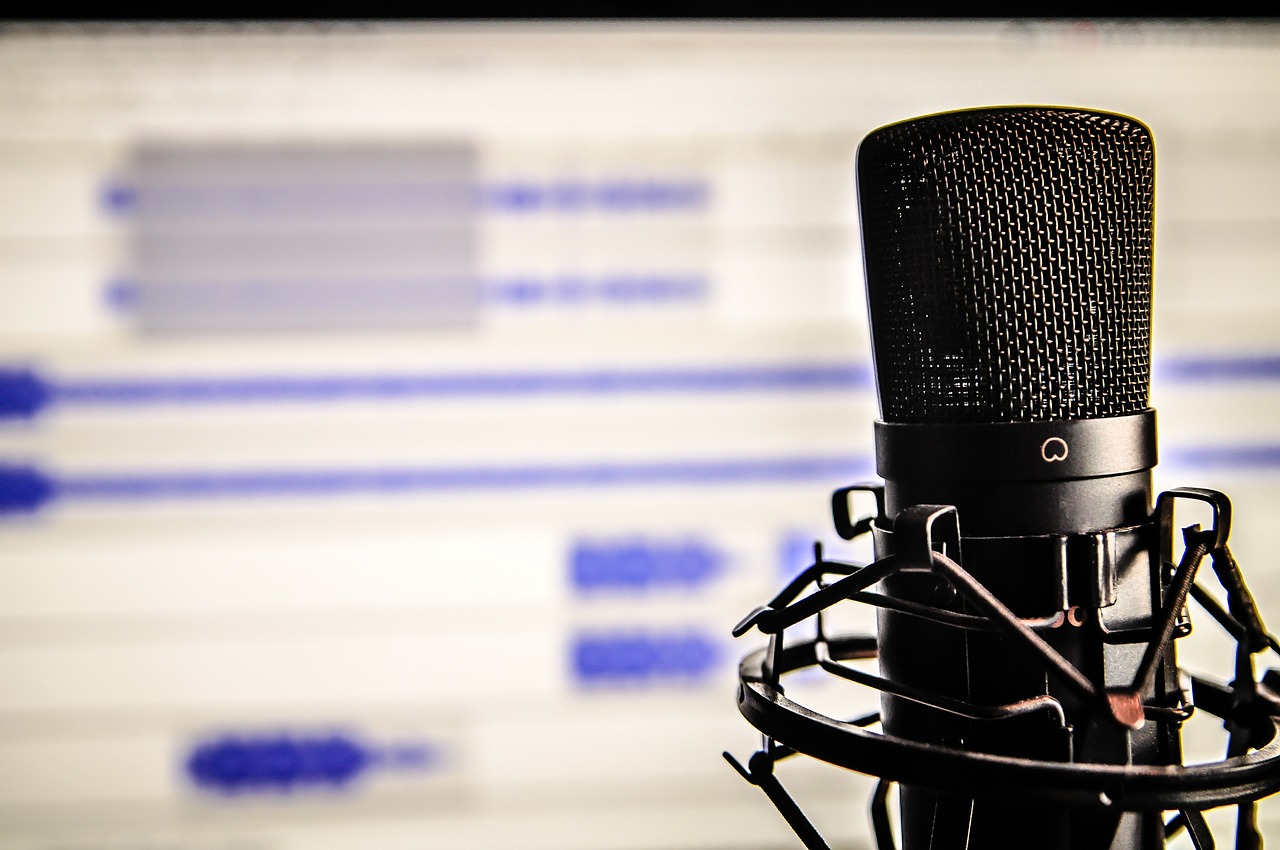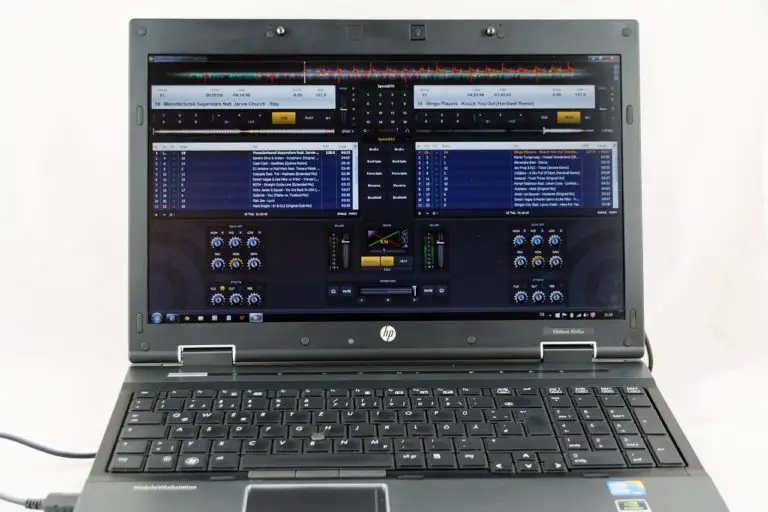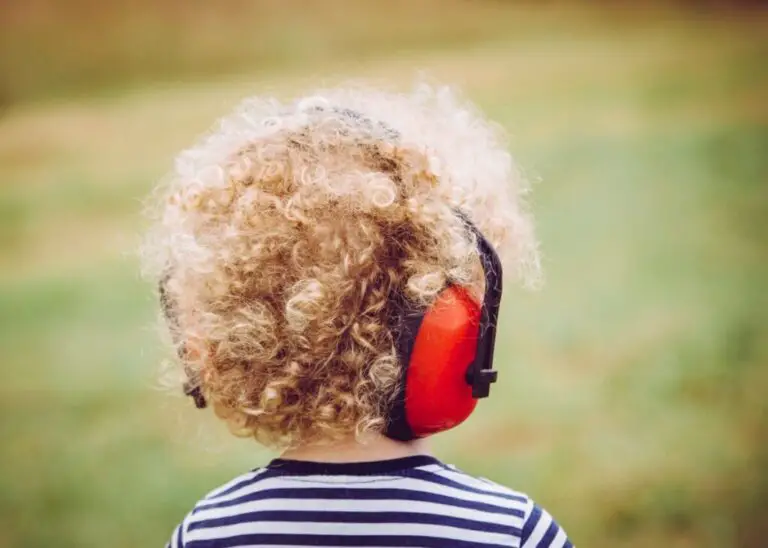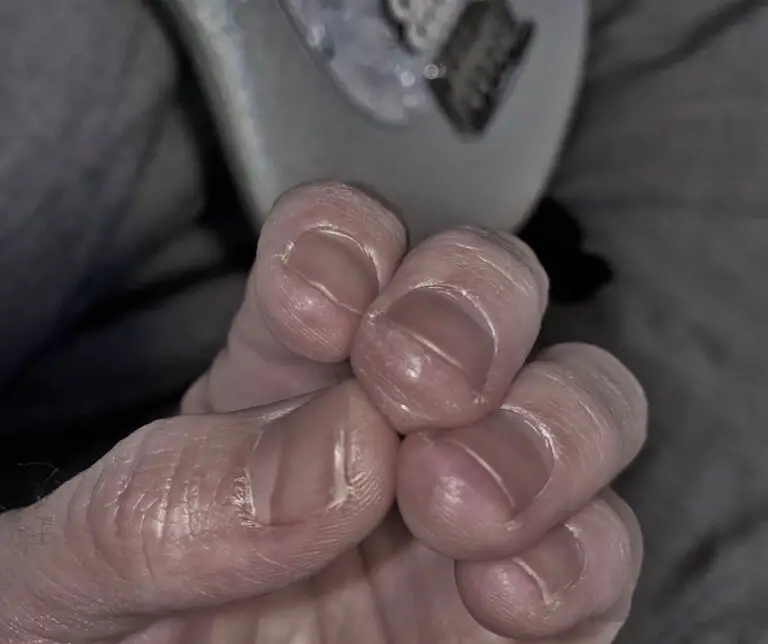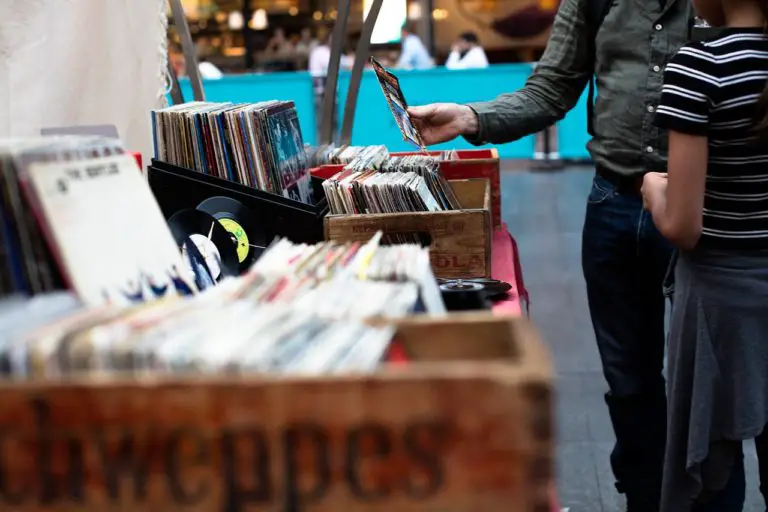Podcast Music Licensing: Everything You Need To Know
Podcasts have quickly become a hit form of entertainment, as an alternative to radio shows and video channel shows. So, you are probably looking to cash in on this cash cow of an industry. Before you add any music to your podcast, there are a few things you need to know. Music licensing is a serious deal, but we are here to make it simple for you!
To start, we will answer the question: Can I play copyright music on my podcast?
You can use copyrighted music in your podcast, but you must consider the licensing agreements for the music you plan to use. It does not matter how long the music clip is or how you use it in the show. It is vital to get the proper licensing to avoid the assessment of fees or fines.
This post will discuss how to legally use music in your podcast and some of the most common myths about podcast music licensing. Also, we will cover how to license music for your podcast and some easy ways to add music to your podcast that do not require a license. Stay tuned because we have a lot of great information for you!
Can You Legally Use Music In Your Podcast?
There are a few ways to use music in your podcast legally. But every way requires you to have permission and license to use the music. And, it can be a complex process to make sure you have all the proper licenses. You want to have protection from incurring any copyright fees, fines, or strikes.
To legally use copyrighted music in your podcast, you must have permission to use the piece. Generally, the only way you can prove you have permission is through the purchase of a license.
As you further research podcast music licensing, you may encounter some widespread myths among the podcasting industry. We will cover those below.
Common Myths About Using Music In Your Podcast
There are quite a few myths out there when it comes to using music in your podcast. Simply put, you cannot use any copyrighted music in your podcast without permission from the copyright holder or unless you have purchased the rights to use it.
However, there are still all of the following myths about using music in your podcast, and they are all completely false:
False Statements on Using Music in Podcasting
- If you only use 2, 3, 10, or 30 seconds of the song, it is okay. – False. A clip of music that is any length of time shared on a podcast must be licensed, or you risk legal action.
- If you follow fair use guidelines, you will be ok. – False. Even within fair use guidelines, any song may be subject to litigation or fines, significantly if you have not transformed the music enough.
- If you credit the original creator, artist, or recording studio, you will not have any problems. – False. You still need to get permission from these sources to use the material legally; without permission, you leave yourself open to legal issues.
- My podcast is not making any money. I do not need to license the music. – False. Not making money does not permit you to use someone else’s song or music on your podcast. Also, you may choose to monetize your podcast in the future, making this point null.
- I own the song and music I am using on my podcast digitally, so I have the right to use it however I want. – False. Owning the song’s digital version means you have purchased the right to use it for yourself in your household. You need to buy a different license to stream any specific song or music in one of your podcasts.
Now, these are probably not all of the false statements you will hear surrounding podcast music licensing, but these are the most common.
Do not let a myth or misconception fool you into thinking you do not need to purchase the proper licensing for your podcast’s music.
If you are taken to court and try to argue your case with any of the above ideas, you will most likely lose. Simply asking prominent artists or recording studios to look the other way is not going to work in your favor.
Do not skip out on purchasing the proper licenses for the music you plan to use on your podcast.
How Can You Legally Use Music In Your Podcasts?
Well, as we have mentioned, you need to purchase the correct licenses to use copyrighted music on your podcast. This process can become very complicated, very quickly, since the music rights are covered in multiple forms, anywhere from mechanical to performance.
The best way to approach adding copyrighted music to your podcast legally is to start by getting a lawyer. They will know who to talk to and how to negotiate terms and contracts with these large corporations.
Here’s a video explaining some aspects of copyright regarding podcasts:
How Does Licensing Music For A Podcast Work?
If you want to license copyright-protected music, you have to get the licenses from the artist, the recording studio, and publishing companies. Additionally, an artist or recording studio will most likely ask for the following information from you regarding the use of their music:
- How long the clip of music will be
- How you plan to use their music
- Where your podcast will be made available
- How often you will use the clip on your podcast
- Who will have access to your content
- Your contact information
You will need to be as specific as possible, which can be difficult. After you have given all of the information above, any groups still may choose not to permit you to use their music in the way that you want.
For this reason, we suggest you shy away from using copyrighted music and choose a free or low-cost alternative that will not land you with tons of legal fees and damages to repay.
Five Ways To Add Music To Your Podcast
We know you probably had your heart set on that sick new beat from that famous new artist, but it is a safer bet to use music with no copyright associated with it and no need to be licensed. There are five alternatives to copyrighted music that you can use on your podcast instead!
The following is a list of five different music options that are excellent choices for you to use on your podcast:
- Use music covered under a Creative Commons license – These licenses allow you to use free music as long as you follow the conditions outlined in the license. You can find an example on creativecommons.org.
- Add royalty-free music to your podcast – Another free music option is to search for royalty-free music specifically.
- Purchase a stock library subscription for access to their licenses – There are many subscription services available out there with libraries of licenses, but do your research before paying. You may find it less expensive in the long run to purchase the one license you plan to use for all of your podcasts. Epidemic Sound is one example of this in action.
- Make your own music or ask a friend – Anyone can be an artist. Ask your friend to mix you a podcast intro melody, or do it yourself. Then you do not need to worry about copyright infringement.
- Use music that falls within the public domain and does not require licensing – Music in the public domain is free for anyone to use because the copyright has expired.
We go into more depth on the free and low-cost alternatives listed above later on in our post. Keep reading to learn about licensing costs, and then learn more about alternative music options for your podcast.
What Costs Can You Expect With Music Licensing?
If you decide to take the route of purchasing rights to use copyrighted music on your podcast, it will defiantly be a costly endeavor. However, if you choose to use the music and not buy the proper licenses, you will end up paying even more in the long run.
Either way, you toss it up, you will be spending money. Again, an easy way to avoid this is to use music with open licensing, which is royalty-free.
The following chart provides some details of potential costs for purchasing the proper licenses if you can’t live without the latest Doja Cat song on your podcast:
| Item for Purchase | Potential Cost |
| Publishing fees for licensed music | $1,500 to $2,500 |
| Master fees for licensed music | $1,500 to $10,000 |
| Annual renewal of licenses | $3,000 to $12,500 |
| Legal fees for a lawyer to negotiate the licenses | $250 to $650 per hour |
If those numbers do not scare you, think of the money you might have to spend if a corporation takes you to court over not paying these fees.
Music Licensing Alternatives Open To Podcast Hosts
Choosing a music alternative is the safest, most legal, and least expensive option for any podcast host or mixer. And you are in luck because there are quite a few resources out there for a podcast host like yourself to use.
Again, even some of these alternatives have licenses that require you to follow specific guidelines. Failure to adhere to those conditions may still result in fines or fees.
Music In The Public Domain
While it may be more limiting than using music with a license, a sure way to avoid any legal issues is by choosing music from the public domain for your podcast.
Music is in the public domain if the copyright has expired or the original creator has dedicated the music to the public domain.
Using media from the public domain can be tricky because, again, you must take the time to identify and confirm that the music you intend to use is actually in the public domain. But once you have done your research, it is smooth sailing!
Music Licensed Under Creative Commons
A Creative Commons license allows you to use a specific music track without having to pay for it. While Creative Commons licenses are great, they do not come without some stipulations. If you are in breach of these conditions at any point during your podcast, you may end up in hot water, too.
To sum it up, no matter what license the music track you add to your podcast uses, it is vital to abide by the conditions set by the open license.
A few of the stipulations or conditions you may come across when using a Creative Commons license are the following opposing allowed uses:
| Non-commercial | Commercial |
| No attribution | Attribution |
| Ability to change | No ability to change |
| Must use same terms to license remixed works | No need to license remixed works or use the same terms |
Make sure you abide by the specific stipulations of the creative commons license to avoid legal problems. While misuse of Creative Commons music probably will not incur as many fees as copyright infringement of a big record company, any fees add up!
The Free Music Archive
Free Music Archive is a website that shares music available without the cost of royalties. This music comes from talented artists all around the world.
One perk of this organization is they will help you sort out any copyright infringement claims if you have flagged content due to your use of their music.
Additionally, attribution of the artist is not required.
And if you are willing to pay a small fee, depending on the licensing you need, Free Music Archives has a sibling site: Tribe of Noise PRO!
Free Sound: Royalty-Free Music Tracks
Another free alternative to purchasing expensive music licenses is to use Free Sound. Free Sound is a database for music and sounds.
Everything is free as long as you abide by the proper licensing agreement.
This database has a great search feature that allows you to find clips that sound like a specific type of sound. For example, you could search for “baa” to find a sheep noise.
You can further choose the type of license you are looking for to best fit your project.
If you want more information on music licensing, check out this video:
How To Follow Fair Use Guidelines On Your Podcast
Now you may be thinking, “alright, I am trying to build a podcast based on critiquing and commenting on new music. How do I stream it over my podcast?”
The answer to that question is complicated because of fair use. You have to be committed to following the guidelines behind fair use strictly to avoid any possible legal repercussions.
In essence, fair use means that the copyrighted work falls under three specific conditions:
- The original work is commented upon, reviewed, or critiqued
- The podcast parodies the original work
- You transform the work enough to make it original
Gamers on YouTube use fair use because they offer a nearly constant commentary on the medium. Thus, they have changed the game enough to be considered original content. Yet, even they must have specific licenses to do this and still earn money legally.
However, with a music critique on a podcast, it may be a little harder to play snippets of a song while actively critiquing the piece. While overlapping audio tracks would most likely qualify you for protection under fair use, it would make for difficult listening.
Do You Need Music On Your Podcast?
One popular question asked after podcast mixers have seen how difficult adding some music to a podcast is: do you even need music? According to NPR’s Ramtin Arablouei, the simple answer is no. You do not need to add music to your podcast.
While it can add depth and emotion to podcasts, you need to be careful with the music you use. Only use it if you think it will add something to your podcast.
Still, if you want to use music in your podcast, use it intentionally. You can use it under the “less is more” rule of thumb. It should never detract or distract from the story you are telling.
In Summary: Podcast Music Licensing Will Cost You
If you want to add music to your podcast, it will cost you some money. Music is available for free under specific licenses, or you can purchase low-cost licenses and subscriptions for access to music that is great for streaming during a podcast.
The biggest takeaway from podcast music licensing is that you do not want to get swept away with all the myths that seem to be prevalent out there. If you use music in your podcast, you most likely have to pay for a license. Do not try to skate by on the fair use defense.
And if, after all that, you are still a bit confused or concerned about accruing any copyright infringement fees, it is best to speak with a lawyer who practices copyright law. I recommend Ben McLane of McLane and Wong. He’s worked with some of the industry’s most prominent artists and has tremendously helped both my site and record label over the years.
Keep it on Bythebarricade.com for tons of punk rock interviews, reviews, articles, and photos! Also, “Like” By the Barricade on Facebook to never miss a post.

